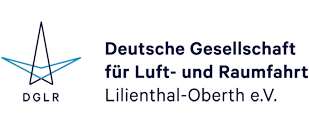DGLR-Publikationsdatenbank - Detailansicht
Autor(en):
J. Meier, M. Finke, O. Ohneiser, M. Jameel
Zusammenfassung:
The current shortage of air traffic controllers (ATCO) and expected growth of air traffic in Europe requires new approaches to further ensure efficient and safe air traffic. One solution could be to increase the deployment possibilities of ATCOs to different airspaces or aerodromes. While concepts for such flexible endorsements in the upper airspace (centre) already exist, the development of similar concepts in the remote tower domain is not as advanced. Flexible endorsements can be empowered by increasing standardisation and offering more comprehensive technical support for ATCOs. This approach helps ATCOs to adapt more easily to new environments, such as Remote Tower Centres (RTC). In this context, the use of Artificial Intelligence (AI) technology as a tool to support ATCOs is of increasing interest. Despite its potential to complement traditional support tools and facilitate adjustments to future employment models, AIs role in this area has not yet been thoroughly investigated. AI-powered decision making enables ATCOs to quickly adapt to different tasks and environments by performing rapid analyses of real-time data, improving their overall flexibility, and responsiveness. To address this gap in research, this paper conducts a systematic literature review to identify the current state of research, trends, and challenges in the field of AI-supported decision-making for ATCOs. The review is carried out using Google Scholar and focusses on publications from the years 2020 to 2024. "Artificial Intelligence", "Decision Support", and "Air Traffic Controller" were used as keywords. 294 papers have been found and analysed. The findings were then iteratively filtered based on title, abstract, and content. Remaining hits were clustered according to thematic areas to provide an overview of key thematic focuses. Subsequently, experts were consulted to examine the extent to which the literature review outcomes support the concept of flexible ATCO deployment. The research outcomes show, that AI technologies offer significant advantages when it comes to supporting ATCOs in real-time decision-making, route optimisation, conflict detection, and situational awareness. However, much of the focus is on applications in the upper airspace. There is an absence of research directly addressing tower or RTC environments. The research presented in this paper has been conducted in the frame of the European IFAV3 project.
Veranstaltung:
Deutscher Luft- und Raumfahrtkongress 2024, Hamburg
Verlag, Ort:
Deutsche Gesellschaft für Luft- und Raumfahrt - Lilienthal-Oberth e.V., Bonn, 2024
Medientyp:
Conference Paper
Sprache:
englisch
Format:
21,0 x 29,7 cm, 10 Seiten
URN:
urn:nbn:de:101:1-2410251447520.566978286975
DOI:
10.25967/630258
Stichworte zum Inhalt:
Flexible ATCO Deployment, Artificial Intelligence
Verfügbarkeit:
Download
- Bitte beachten Sie die Nutzungsbedingungen dieses Dokuments: Copyright protected
Zitierform:
Meier, J.; Finke, M.; et al. (2024): Flexible Air Traffic Controller Deployment with Artificial Intelligence based Decision Support: Literature Survey and Evaluation Framework. Deutsche Gesellschaft für Luft- und Raumfahrt - Lilienthal-Oberth e.V.. (Text). https://doi.org/10.25967/630258. urn:nbn:de:101:1-2410251447520.566978286975.
Veröffentlicht am:
25.10.2024
